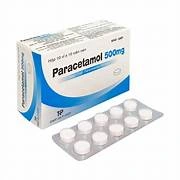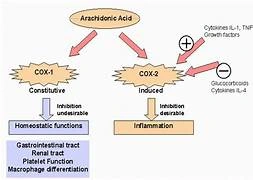MOST COMMON MEDICATION (PARACETAMOL)
General description of paracetamol
Paracetamol, also known as acetaminophen, is a commonly used pain reliever and antipyretic. It is a non-opioid analgesic, meaning it is not an opioid. Paracetamol is used to treat many conditions including headache, muscle pain, arthritis, back pain, toothache, colds and fever. Paracetamol works by blocking the production of prostaglandins, chemicals in the body that cause pain and swelling. It does this by inhibiting cyclooxygenase (COX) enzymes, specifically COX-2. By blocking prostaglandins, paracetamol helps reduce pain, swelling and fever. Paracetamol is available in various forms - tablets, capsules, syrup and suppositories. The usual adult dose is 500 to 1,000 milligrams every 4 to 6 hours as needed. The maximum daily dose for adults is 4,000 milligrams over 24 hours. Paracetamol is generally very safe for short-term use, but large doses can cause liver damage. Paracetamol is a popular and widely used drug. It is inexpensive, safe in regular doses, and very effective in controlling pain and reducing fever.

Brief history and its discovery
Paracetamol was first discovered in 1877 by scientists Harmon Northrop Morse and Charles Frederick Chandler. They synthesized paracetamol while experimenting with coal tar derivatives. However, paracetamol was not used medically until 1887 when it was recommended as a treatment for fever. In 1893; paracetamol was marketed as a pain reliever under the brand name Phenacetin. It grew in popularity as an alternative to aspirin, especially for children and those with ulcers [diener 2014]. Phenacetin was later found to have side effects like kidney damage and was discontinued. Paracetamol was reintroduced as an over-the-counter drug in 1955 under the brand name Tylenol. It quickly became popular as a safe alternative to aspirin for many people. In 1956, the chemical name acetaminophen began being used in the U.S. to refer to paracetamol. Paracetamol gained worldwide acceptance as a popular and safe over-the-counter analgesic. It is on the World Health Organization's List of Essential Medicines as an important and affordable drug needed in a basic health system. Paracetamol continues to be widely used today, with over 70 million Americans using it each week to treat pain and fever. [dahlof 1996]
How Does Paracetamol Work?
Its mechanism in the body
Paracetamol works by inhibiting the production of prostaglandins in the body that cause pain and inflammation. It does this by blocking the activity of cyclooxygenase (COX) enzymes, especially COX-2. The COX enzymes are responsible for producing prostaglandins from arachidonic acid. By inhibiting COX enzymes, paracetamol reduces the levels of prostaglandins, which in turn relieves pain and reduces inflammation. Paracetamol preferentially inhibits COX-2 over COX-1. COX-2 is mainly responsible for producing the prostaglandins involved in pain and inflammation. COX-1, on the other hand, produces prostaglandins that protect the stomach lining and aid in blood clotting. So by selectively inhibiting COX-2 over COX-1, paracetamol reduces pain and inflammation while still allowing COX-1 to continue protecting the stomach and enabling normal blood clotting (jadad 1966a). The exact mechanism by which paracetamol inhibits the COX enzymes is not fully understood. It is believed to block COX activity through its metabolite AM404, which inhibits the COX enzymes indirectly. Paracetamol may also act on the cannabinoid receptors in the brain and spinal cord to block pain signals.

Its effect on pain and temperature regulation
Paracetamol has both analgesic (pain relieving) and antipyretic (fever-reducing) effects. Here is how it works in detail:
Analgesic effect: Paracetamol blocks the production of prostaglandins that stimulate pain receptors and transmit pain signals in the body. By reducing prostaglandins in the central nervous system and peripheral tissues, paracetamol modifies the body's perception and response to pain. This results in an elevation of the pain threshold and a decrease in pain intensity. Paracetamol also acts on cannabinoid receptors in the brain, spinal cord and nerves to block pain signals. The metabolite AM404 formed from paracetamol activates cannabinoid receptors to inhibit the transmission of pain sensations. This contributes to the pain-relieving effect of paracetamol.
Antipyretic effect: Paracetamol reduces fever by acting on the hypothalamic heat-regulating centre in the brain. Prostaglandins in the hypothalamus are involved in raising body temperature. By blocking COX enzymes and reducing prostaglandins, paracetamol lowers the body's temperature set point, leading to a decrease in fever. Paracetamol may also increase blood flow to the skin, causing heat loss and a lowering of body temperature. The warmth of the skin may also lead to a sensation of feeling cooler, providing relief from fever.
Pain: Paracetamol inhibits COX enzymes in the central nervous system, including the brain and spinal cord. This reduces prostaglandins that sensitize pain receptors and transmit pain signals. The result is an elevation of the pain threshold so that weaker pain signals are not perceived. Stronger pain signals are also dampened, so pain is felt less intensely. Paracetamol acts on cannabinoid CB1 receptors in the brain, spinal cord and peripheral nerves. The metabolite AM404 activates CB1 receptors, which inhibits the release of neurotransmitters involved in transmitting pain signals. This contributes to the pain-blocking effect of paracetamol. Paracetamol works peripherally by inhibiting COX enzymes in tissues, joints and muscles. This decreases prostaglandins at the site of injury or inflammation, reducing localized pain. Paracetamol may also have weak anti-inflammatory effects by inhibiting COX activity. The pain-relieving effects of paracetamol take 30-60 minutes to begin working and peak in 1 to 2 hours. Pain relief can last for up to 4 to 6 hours. The duration of action depends on the dosage and form of paracetamol.
Temperature regulation:
Paracetamol acts on the hypothalamic heat-regulating centre in the brain. It inhibits COX enzymes here, reducing prostaglandins that set the body's normal temperature. This results in a decrease in the body's temperature set point, leading to a lowering of fever. Paracetamol may increase blood flow to the skin, causing more heat loss and a drop in body temperature. This also provides a sensation of feeling cooler, which can relieve the discomfort from a fever. The antipyretic effects of paracetamol typically begin working within 30-60 minutes. Fever reduction tends to last for 3 to 6 hours before the temperature starts to rise again. The duration depends on several factors, including dosage, severity of fever, and cause of the fever.
Cases and Benefits of Paracetamol
General pain relief, fever reduction and safe use for all age groups, with proper dosage
Paracetamol is commonly used for general pain relief from conditions such as:
• Headaches - Paracetamol is effective for relieving tension headaches, migraines and headache pain. It works by reducing prostaglandins that cause headache pain and by blocking pain signals in the brain and nerves.
• Back pain - Paracetamol can alleviate back pain from muscle strains, injuries, arthritis or other causes. It reduces prostaglandins that stimulate back pain receptors and also act centrally to modify the perception of back pain.
• Toothache - Paracetamol is useful for relieving toothache pain as it decreases prostaglandins in the gums and nerves that transmit tooth pain. It also works in the brain to block pain signals from the mouth and jaw.
• Minor arthritis pain - Paracetamol helps relieve pain from osteoarthritis and rheumatoid arthritis. It reduces prostaglandins that cause joint inflammation and pain. Paracetamol may also have minor anti-inflammatory effects.
• Muscle aches - Paracetamol is effective for relieving minor muscle pain, strains and sprains. It works by blocking prostaglandins that stimulate muscle pain receptors and modifying the central perception of muscle pain.
• Menstrual cramps - Paracetamol can help relieve pain from menstrual cramps and dysmenorrhea. It decreases prostaglandins that cause uterine contractions and cramping pain. Paracetamol also acts centrally to block the transmission and perception of pain from the uterus.
The main benefits of using paracetamol for general pain relief are:
• It is a safe and effective over-the-counter pain reliever when used as directed.
• It has few side effects or drug interactions compared to other pain medications like NSAIDs or opioids.
• It works for a variety of common pains - headaches, back pain, arthritis, muscle pain, toothache, menstrual cramps, etc.
• Pain relief starts within 30-60 minutes and can last for 3 to 6 hours depending on the dosage.
• It reduces discomfort from pain so people can continue with their daily activities.
Paracetamol is commonly used to reduce fever in both children and adults. Some of the main benefits of using paracetamol as an antipyretic include:
• It helps lower body temperature by acting on the hypothalamic heat-regulating centre in the brain. This provides relief from the discomfort of fever.
• Paracetamol is safe for use in all age groups when taken in proper dosage. For children, the dosage is based on body weight and age. For adults, the maximum daily dose is 4000 mg in 24 hours.
• Paracetamol has few side effects compared to other fever reducers. The most common side effects are minor like rash, nausea or diarrhoea. When taken as directed, paracetamol rarely causes any serious side effects.
• Paracetamol is non-addictive and does not cause drowsiness or impaired thinking. So it can be used while continuing normal activities.
• Paracetamol comes in various child-friendly forms like syrups, suppositories and tablets that can be crushed. So it is easy to administer to children.
• Paracetamol starts working within 30-60 minutes to lower fever. The effects tend to last 3 to 6 hours before the temperature starts rising again. So re-dosing may be needed for prolonged fever reduction.
• Paracetamol can be used along with other medications to relieve fever as well as other symptoms like body aches, dehydration, etc. However, dosage adjustments may be required.
• Paracetamol is readily available as an over-the-counter medication and is inexpensive. So it is accessible for most people to use in controlling fever.
Some important notes on using paracetamol for fever reduction:
• Do not exceed the maximum daily dose for your age and weight. Too much paracetamol can cause liver damage.
• Use the lowest effective dose for the shortest time needed. Only re-dose as directed.
• See a doctor if the fever is high, lasts more than 3 days, or is accompanied by other symptoms. Paracetamol only provides temporary relief.
• For children, use a pediatric formulation and follow the dosage for your child's age and weight. Never give adult doses to children.
• Be aware of any ingredients that may interact with paracetamol like alcohol, warfarin, etc. Consult a pharmacist if needed.
Paracetamol during Pregnancy
Here are some key points about using paracetamol during pregnancy:
a. General safety: Paracetamol is considered the safest pain reliever for pregnant women when used as directed. It does not appear to pose risks of birth defects or other harm to the fetus. The benefits of using paracetamol to relieve pain and reduce fever generally outweigh the potential risks. However, as with any medication taken during pregnancy, paracetamol should only be used if clearly needed and under medical guidance.
b. Possible concerns: Although paracetamol is the most studied over-the-counter pain reliever in pregnancy and is considered safe, some research has raised concerns about potential links to issues like:
• Asthma in children: Some studies suggest a possible association between paracetamol use in late pregnancy and the risk of childhood asthma. But the evidence is inconsistent and a causal relationship has not been established.
• ADHD in children: Recent research indicates a potential link between long-term paracetamol use during pregnancy and increased risk of ADHD and hyperactivity in children. However, more research is needed and the evidence is not conclusive.
• Male infertility: Some research points to a possible connection between paracetamol exposure in the womb and the development of male reproductive disorders. But larger, more rigorous studies have found no conclusive evidence to support this concern.
• Miscarriage: Although rare, a few studies have suggested a potentially small increased risk of miscarriage with frequent or high-dose paracetamol use in early pregnancy. But most research has not found a definitive link.
c. Consult a doctor: While paracetamol is considered the safest option for pain/fever relief in pregnancy, you should always talk to your doctor before using any medication. Your doctor can determine if paracetamol is appropriate and provide dosage recommendations based on your stage of pregnancy and any other medical conditions. They can also advise you on any signs/symptoms that require immediate medical attention.

Potential Side Effects and Risks
a. Common and rare side effects:
Common side effects include:
• Nausea, vomiting, and diarrhoea: Many medications can irritate the stomach or intestines. These side effects are usually temporary but can be minimized by taking the medication with food.
• Dizziness or drowsiness: Some medications cause changes in blood pressure or interact with the central nervous system, resulting in feelings of lightheadedness or sleepiness. Use caution if driving or doing other activities that require alertness.
• Headache: Medications that affect the central nervous system can trigger headaches in some people. Mild headaches are usually temporary, but severe or persistent headaches should be reported to your doctor.
Rare but serious side effects include:
• Severe allergic reactions: Although rare, medications can potentially trigger a dangerous allergic reaction in some people. Seek medical help immediately if you experience symptoms like swelling of the lips, face, tongue, and throat or itching, rash, hives, chest tightness, or trouble breathing.
• Liver or kidney damage: Some medications, especially when used long-term or in high doses, can cause damage to the liver, kidneys, or other organs. Regular blood tests may be needed to monitor for this. See your doctor right away if you notice dark urine, yellowing of the eyes or skin, abdominal pain, or swelling.
• Heart problems: Certain medications can cause abnormal heart rhythms or blood pressure changes in some people. Seek medical help immediately if you experience chest pain, shortness of breath, or a pounding heartbeat.
b. Risks of long-term usage:
Long-term use of medications may lead to:
• Physical dependence: Some medications, especially certain antidepressants, painkillers, and sedatives, can cause physical dependence when used over a long period. This means that stopping the medication abruptly can lead to withdrawal symptoms. Close monitoring by your doctor is needed when stopping these medications.
• Tolerance: For some medications, especially opioid painkillers, your body can become tolerant over time, meaning you need higher and higher doses to achieve the same effect. This can increase the risks of side effects and overdose.
• Health conditions: Long-term use or high doses of certain medications may increase the risk of chronic health issues. For example, long-term corticosteroid use can lead to osteoporosis, high blood pressure medication may cause kidney disease, and certain painkillers can lead to liver damage over time. Regular monitoring by your doctor is important to minimize these risks.
c. Risks associated with overdose, and the importance of correct dosage:
Taking too much of a medication, whether intentionally or accidentally, can lead to an overdose which may cause:
• Organ damage: Excessive amounts of medications can damage the liver, kidneys, heart, and other organs. Some organ damage may be permanent.
• Seizures: High doses of certain medications may trigger seizures in some people, even in those without a seizure disorder.
• Loss of consciousness: An overdose of many medications, especially those that affect the central nervous system, can lead to drowsiness, confusion, coma, and even death.
• Death: An overdose of some medications, especially opioid painkillers and certain antidepressants can slow breathing and heart rate to dangerously low levels, which may lead to death if not treated promptly.https://www.cochranelibrary.com/cdsr/doi/10.1002/14651858.CD011889.pub2/references#dataAndAnalyses:~:text=Comparison%201.,0.83%20%5B0.74%2C%200.93%5D
Misconceptions about Paracetamol
a. Common myths about Paracetamol:
• Paracetamol is completely safe in normal doses: While paracetamol is generally safe for most adults in recommended doses, it can still cause side effects like nausea, stomach pain, and liver damage, especially if used long-term or in high doses. Paracetamol overdose is also dangerous and can lead to liver failure and even death.
• Paracetamol only treats pain: In fact, paracetamol also helps reduce fever. It works by inhibiting the production of prostaglandins in the body that cause pain and fever.
• Paracetamol has no risks or side effects: When taken in high doses or combined with alcohol, paracetamol can cause liver damage, especially if used long-term. It can also cause side effects like nausea, stomach pain, and headaches in some people. While rare, allergic reactions to paracetamol are possible and can be dangerous.
• Paracetamol is not an "over-the-counter" drug: Paracetamol is available without a prescription, but that does not mean it is completely harmless. Like any medication, it needs to be taken carefully according to the instructions and under the guidance of a doctor or pharmacist.
• Paracetamol cannot cause addiction: While paracetamol itself does not cause addiction or dependence, the risks are higher if it is combined with opioid drugs. It is still possible to become addicted to the combination of paracetamol and opioids.
• A major research review found that paracetamol use is associated with a small but significantly increased risk of heart attack, especially in those with a history of heart disease. The risk seems to be highest with long-term use or high doses of paracetamol. (Circulation, 2015)
• A large Danish study found that frequent or long-term use of paracetamol during pregnancy may increase the risk of asthma or ADHD in children. The risk was highest when paracetamol was used in multiple trimesters of pregnancy. (International Journal of Epidemiology, 2016)
• Several studies have found that long-term use or high doses of paracetamol may lead to kidney disease over time. The risks seem to be highest in those who already have high blood pressure or pre-existing kidney impairment. (BMJ Open, 2014 Journal of the American Society of Nephrology, 2010)
• A review of multiple studies concluded that paracetamol in normal therapeutic doses is unlikely to cause liver damage on its own, but when combined with alcohol use or in overdose situations, the risks of liver toxicity are significant. Liver damage from paracetamol can occur even with short-term use in some individuals. (Expert Review of Gastroenterology and Hepatology, 2017)
• A large analysis of multiple studies found no clear evidence that paracetamol use during pregnancy leads to autism or ADHD in children. While some individual studies have suggested a possible link, most research does not support a causal relationship. (International Journal of Epidemiology, 2016)
Conclusion
Paracetamol, also known as acetaminophen, is a widely used over-the-counter medication for pain relief and fever reduction. It works by inhibiting the production of prostaglandins, chemicals in the body that cause pain and inflammation, through the blocking of cyclooxygenase (COX) enzymes, particularly COX-2. First discovered in 1877, paracetamol was not used medically until a decade later. It was initially marketed as Phenacetin, but it was discontinued due to side effects like kidney damage. Paracetamol was reintroduced in 1955 under the brand name Tylenol and quickly gained popularity as a safe alternative to aspirin. Today, it remains a staple in many households and healthcare systems worldwide. Despite its widespread use, it's important to remember that while paracetamol is generally safe in recommended doses, misuse or overdose can lead to serious health issues, including liver damage. Therefore, it should always be used responsibly and under the guidance of a healthcare professional. In conclusion, paracetamol is a widely used over-the-counter medication that offers both analgesic and antipyretic effects. It works by blocking the production of prostaglandins and acting on cannabinoid receptors, which helps to alleviate pain and reduce fever. Paracetamol is effective in treating various types of pain, such as headaches, back pain, toothache, minor arthritis pain, muscle aches, and menstrual cramps. The benefits of using paracetamol include its safety when used as directed, few side effects or drug interactions, and its effectiveness in treating a range of common pains. It provides relief from discomfort, allowing individuals to continue with their daily activities. As an antipyretic, paracetamol is safe for all age groups when taken in the proper dosage and has few side effects compared to other fever reducers. However, it is essential to use paracetamol responsibly, adhering to the recommended dosage and seeking medical advice if symptoms persist. Overdosing can lead to serious health issues, including liver damage. Paracetamol is a widely used over-the-counter medication that offers both analgesic and antipyretic effects. It is generally considered safe for use during pregnancy when taken as directed and under medical guidance. However, some research has raised concerns about potential links to issues like asthma, ADHD, male infertility, and miscarriage, although the evidence is not conclusive. Paracetamol has some common and rare side effects, and long-term usage may lead to physical dependence, tolerance, and health conditions. Overdosing on paracetamol can be dangerous and may cause organ damage, seizures, loss of consciousness, or even death. It is crucial to follow the correct dosage to minimize these risks. There are several misconceptions about paracetamol, such as its complete safety, its effects on pain and fever, and the potential for addiction. It is essential to be aware of these misconceptions and understand the potential risks and side effects associated with paracetamol use. Always consult a healthcare professional before using any medication, especially during pregnancy, and follow their guidance to ensure safe and effective use.
Like this project
Posted Oct 7, 2023
medical
Likes
0
Views
18
Tags



